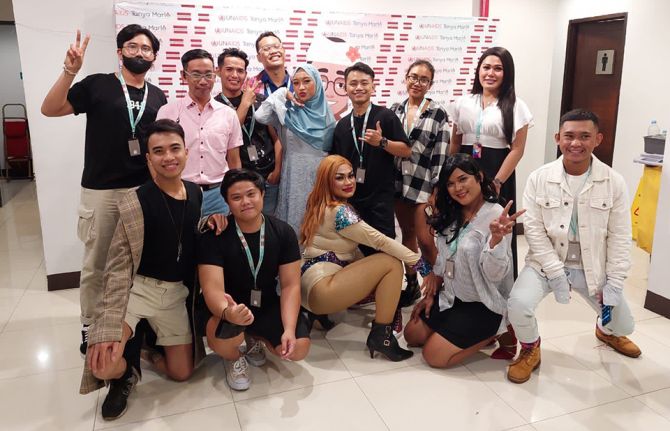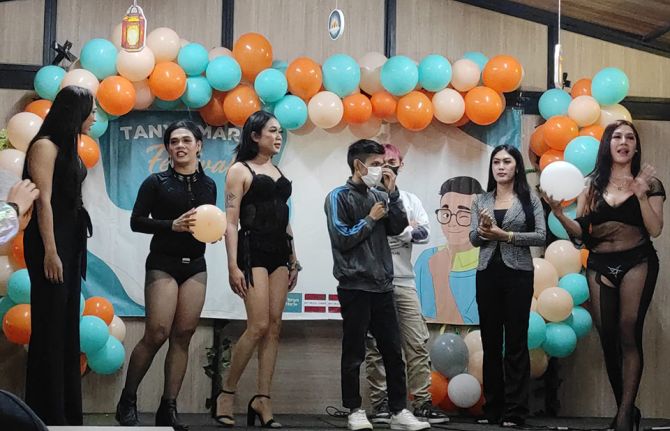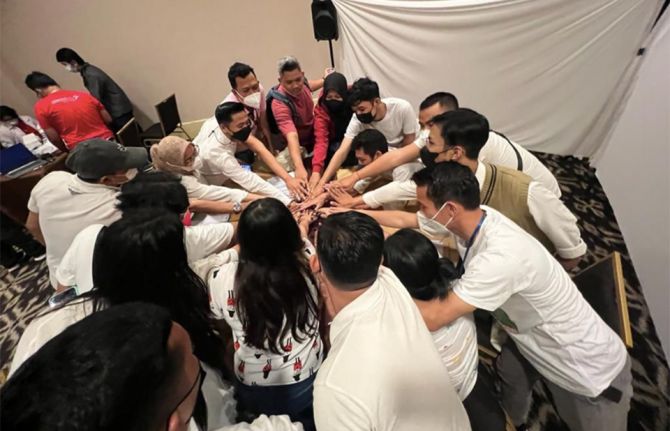



Feature Story
Empowering young people at youth festivals in Indonesia
03 August 2022
03 August 2022 03 August 2022“This is the first time I feel comfortable expressing my true identity," said Yogi one of the youth festival participants in Bali, Indonesia. "I am currently involved in this youth festival, and I feel safe being among new friends who are in a similar situation as me," Yogi added. "I also received new information about HIV as well as gaining access to counselling services that are a comfort.”
In a conservative country like Indonesia, sex is considered a taboo subject. Whether with parents, teachers or other adults, discussing sex and sexual health with young people is strongly discouraged. Accessing comprehensive information on sex and sexual and reproductive health and rights (SRHR) is even more challenging for young key populations, who do not have many safe spaces for discussion and are not adequately empowered with knowledge due to marginalization and discrimination.
Data shows that the level of knowledge on HIV and the level of comprehensive sexuality education (CSE) among adolescents in Indonesia are still very low. According to the 2017 Demographic and Health Survey (IDHS), 82% of women and 83% of men have heard of HIV and AIDS. Unfortunately, only 14% of women and men aged 15-24 have comprehensive knowledge of HIV. The lack of comprehensive knowledge about HIV contributes to the low demand for and access to HIV prevention and testing services, making it more difficult to curb new HIV infections in Indonesia.
“I gained access to HIV-related services only after I had been diagnosed, so I was feeling quite hopeless then," said a youth participant in a focus group discussion held by Inti Muda, the national young key population network. "I used to think that once you are infected with HIV, you will certainly die, so I used to feel scared seeking help by going to HIV services,” the participant added.
With the intention of addressing the challenges experienced by young key populations in accessing health information and services, Inti Muda and UNAIDS Indonesia, with support from the Government of Australia’s Department of Foreign Affairs and Trade (DFAT), initiated a series of Youth Festivals in various cities in Indonesia.
These festivals provided young key populations with a safe and comfortable space for collective discussion, expression and learning about issues important to their sexual health and well-being. The event not only included education about HIV and SRHR, it also provided opportunities for young people the to show off their talents while raising the topic of HIV and sexual and reproductive health and rights. Moreover, youth participants were able to access free HIV testing on site, with youth-friendly counselling free from judgment and discrimination.
“The festivals allowed us to bring out our talents in public speaking, poetry reading, and storytelling towards HIV and SRHR issues. This showed that we can be empowered, creative and have talents to be leveraged,” expressed Febri, another participants in the youth festival in Jakarta.
Having activities tailored for young key populations and connecting young people with their peers to learn about HIV and SRHR contributes to the HIV response in Indonesia, as young people who are informed about their bodies are more empowered to protect themselves from HIV. This is especially crucial in Indonesia where young people (15-24) account for almost half of new HIV infections in the country.
“Educational methods or outreach activities that are too conservative sometimes can make youth reluctant to actively participate,” explained Sepi Maulana Ardiansyah, National Coordinator for Inti Muda Indonesia.
From February to April 2022, youth festivals were successfully held in 7 provinces in Indonesia, including Jakarta, South Sulawesi, Papua, Bali, North Sumatra, East Java, and West Java. Over 700 young people from key populations participated in these festivals and 140 participants accessed HIV testing services provided by Inti Muda in collaboration with local health provinces and Primary Health Centres.
"As we want to reach more young key populations as targeted beneficiaries, it is crucial for UNAIDS to be able to listen and believe in the approach that is used by Inti Muda Indonesia as a partner that is youth-led. This is done to ensure that youth empowerment, participation, leadership as well as activities and approaches are meeting the needs of young key populations,” said Krittayawan Boonto, the UNAIDS Country Director for Indonesia.



